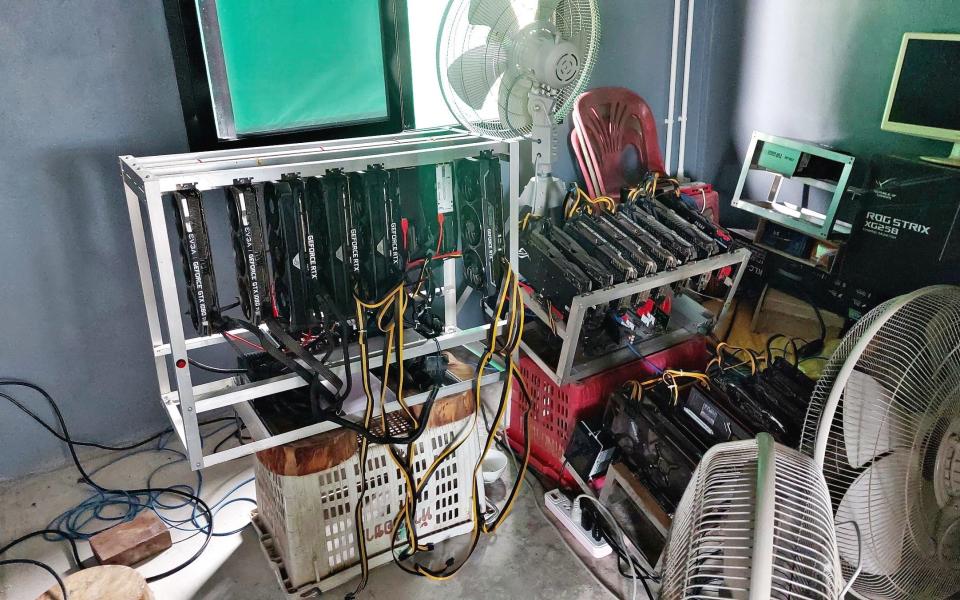First death from mining Bitcoin

It has been described as the digital world's Gold Rush, a virtual Klondike where all comers can get rich.
But despite sitting behind a computer terminal rather than digging in frozen Alaska, prospectors to the craze of "Bitcoin mining" are learning that it too can be a hazardous trade.
In what is believed to be the industry's first fatality, a bit-coin "miner" has died after his computer exploded during an attempt to increase its power and allow him to mine more Bitcoins.
The death of Danai Makmek, 26, in Thailand is the latest in a string of industrial accidents caused by unregulated Bitcoin mining, in which practitioners often rig up dozens of computers that then cause power overloads.
Bitcoin mining is a process by which the virtual currency "crowdsources" hundreds of thousands of volunteers worldwide to verify digital transactions and ensure that they are legal. In return for completing sets of verified transactions, the volunteers – known as "miners" - earn quantities of Bitcoins.

The cottage industry has attracted large numbers of recruits, some of whom claim to earn hundreds of dollars a day. But because of the heavy computer power required to verify the transactions, many "miners" harness multiple computers together to increase the earnings. That has to concerns that the practice, if unregulated, is only potentially dangerous but also harmful to the environment.
Mr Makmek was reported to have been distraught after his sprawling banks of computers developed problems with their hard drives. Rather than waiting for a technician to fix the devices the following day, he attempted to repair them on his own, causing a blast that electrocuted him.
His brother Apiwat said that he found him dead on Wednesday morning when he and the technician went to Mr Makmek's room. He was slumped over a computer wearing only a pair of shorts.
"The computer was modified to give it more power," Apiwat said. "I do not think it was safe but my brother had built it himself for Bitcoin mining, which he really liked."
Santi Shoosheud, a local police colonel, said: 'We believe he attempted to fix the broken machine on his own and was electrocuted."
The accident will highlight concerns over the lack of regulation of Bitcoin mining, the majority of which is currently done in Asia, which has cheap sources of technologically-literate labour. Although it can be a source of employment, China, which is currently home to around two-thirds of Bitcoin miners, wants to crack down on the practice, amid concerns about the amount of energy it consumes.
According to one study by Cambridge University, Bitcoin uses more electricity annually than the whole of Argentina.
Previous Bitcoin mining accidents have included an inferno that destroyed a block of flats near Vladivostok in eastern Russia, where one resident had illegally plugged his computers into the block's main electricity supply.
The value of Bitcoins has halved since its peak earlier this year, thanks to the Chinese crackdown on mining and the prospect of further financial regulation. On Tuesday, the European Union announced proposals that would oblige firms transferring bitcoin and other crypto-currences to collect senders' and recipients' details in order to counter money-laundering.
Providing anonymous crypto-asset wallets will also be prohibited, just as anonymous bank accounts are already banned under EU anti-money laundering rules.
EU states and the European Parliament have the final say on the proposals, meaning it could take two years for them to become law.

 Yahoo Finance
Yahoo Finance 